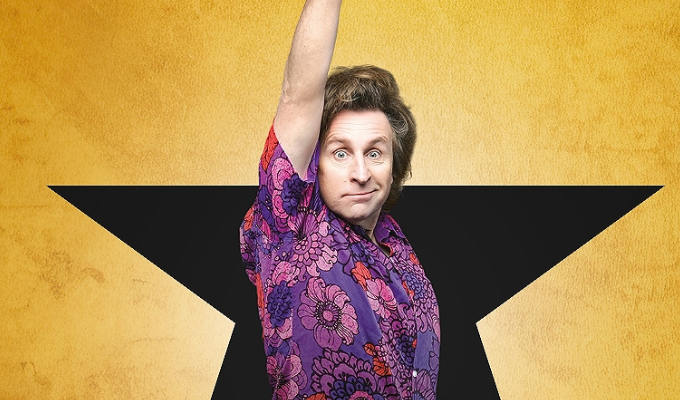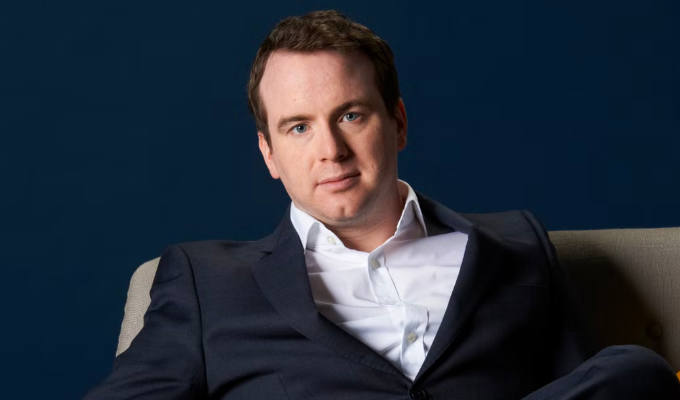'We don't need you!'
Patton Oswalt's message to the comedy industry
TV executives and agents need to treat comedians with more respect – because comics no longer need their support to become successful.
That was the message from Patton Oswalt in his keynote speech at Montreal’s Just For Laughs festival today.
He said that with the advent of YouTube, podcasts and Twitter, comedians can build their own careers without the Intervention of traditional ‘gatekeepers’.
‘There are no more gates to keep,’ he said. ‘Our careers no longer depend on people in plush offices dishing out luck.’
Oswalt said he was not going to rail against the studios and managers that had given him so many breaks, but said that the traditional industry had become ‘more than half-complacent’.
He cited the success of Louis CK’s show Louie – over which he had complete artistic control – as the perfect model; where network bosses give proven comedians free rein to express themselves.
And if they don’t, comics have the means to create their own content, fan base and careers without any industry backing, he explained.
Oswalt said the world of comedy has changed twice in his career. The current new media revolution is the second; the first happened on May 22, 1992, when Johnny Carson hosted his last Tonight Show.
‘Before that, as a comedian you went on Carson, you killed, you got called to the couch, next day you got your sitcom and your mansion. Ask Drew Carey, Jerry Seinfeld…
‘The mantra was always that you’ve got to work clean, you’ve got to hone your five minutes, you’ve got to get on Carson. That disappeared overnight and left a lot of comedian unmoored, drifting. They decided their time has passed.
‘The key word is that they decided that.’
He then outlined his own career, saying he was lucky enough to be given breaks such as his long-running role on King Of Queens and voicing the Ratatouille film.
Oswalt added: ‘The days of “lucky” and “given” are about to go away. Not entirely, as there will always be people who will benefit from that.
‘But not being “lucky” and not being “given” are not going to define your success as a comedian and an artist. Until this point, it has always been other people deciding [your career]. Not for much longer. Comedians need to stop waiting to “luck out” and “be given” [things].’
He said that in future the balance of power would lie more with the creative talent, telling the industry figures at the festival: ‘If we work with you, it’s because we like you and your product and your ability to push the boundaries. You need to thrown the old model away.’
Oswalt added the new generation of comedians were increasingly more aware of the new way of working, and more willing to press ahead with their own ideas rather than waiting for the industry to call.
‘If you try to control this wildness, then we’ll just walk away – no hard feelings. Just get out of our way while we do it. We don’t need you because we have these now’ – and held up a pocket-sized camera. ‘In my hand I have more film-making technology than Orson Welles did when he made Citizen Kane.’
‘Look at what’s on YouTube. There are sitcoms there now. Some are brilliant, some are “myeh” and some are sucky. But only in the same proportion as the shows on your networks.’
Oswalt spoke from the experience of funding his own Comedians Of Comedy tour, which was made into a low-budget Netflix show, Comedy Central series and concert film, to which he and the other comedians on the tour still retain the rights. He said that the exercise left him with ‘a wider fan base of people I wanted as fans’.
And he said that when it comes to comedy, ‘Youth is no longer king, content is. Age doesn’t matter, it’s what you say.’
Published: 26 Jul 2012






